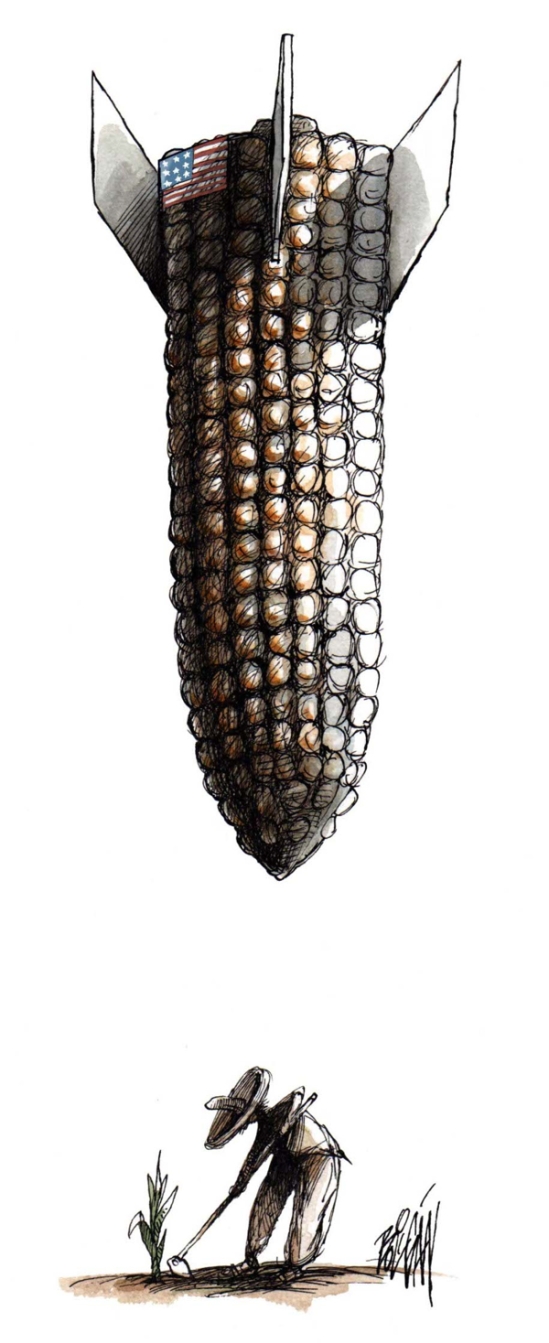“Monsanto Protection Act,” and How Did It Sneak Into Law? A provison that protects the biotech giant from litigation passed Congress without many members knowing about it:
“MON 810”, a variety of genetically modified maize (corn) developed by Monsanto Company. The agricultural giant posted a large increase in quarterly earnings on strong results in corn seed sales in the US and Latin America. Slipped into the Agricultural Appropriations Bill, which passed through Congress last week, was a small provision that’s a big deal for Monsanto and its opponents. The provision protects genetically modified seeds from litigation in the face of health risks and has thus been dubbed the “Monsanto Protection Act” by activists who oppose the biotech giant. President Barack Obama signed the spending bill, including the provision, into law on Tuesday.
Since the act’s passing, more than a quarter million people have signed a petition opposing the provision and a rally, consisting largely of farmers organized by the Food Democracy Now network, protested outside the White House Wednesday. Not only has anger been directed at the Monsanto Protection Act’s content, but the way in which the provision was passed through Congress without appropriate review by the Agricultural or Judiciary Committees. The biotech rider instead was introduced anonymously as the larger bill progressed — little wonder food activists are accusing lobbyists and Congress members of backroom dealings.
The Food Democracy Now and the Center for Food are directing blame at the Senate Appropriations Committee and its chairman, Sen. Barbara Mikulski, D-Md. According to reports, many members of Congress were apparently unaware that the “Monsanto Protection Act” even existed within the spending bill, HR 933; they voted in order to avert a government shutdown.
“It sets a terrible precedent,” the International Business Times. “Though it will only remain in effect for six months until the government finds another way to fund its operations, the message it sends is that corporations can get around consumer safety protections if they get Congress on their side. Furthermore, it sets a precedent that suggests that court challenges are a privilege, not a right.”

